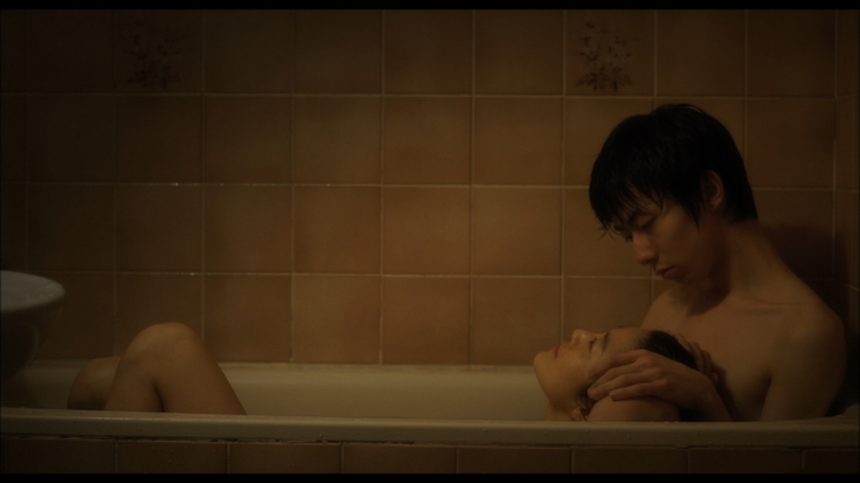Busan 2013 Review: Personal and Subdued PASCHA Resonates

Life has a habit of moving on, whether we'd like it to or not. Moments of joy are fleeting and even our most crushing lows are washed away by the waves of time. Our present always leaves us, replaced to perpetuity with new realities: it's gone but never quite forgotten. The new Korean indie Pascha shows us that small moments can be hard to bare and smaller ones still may often be worth cherishing, but it also reminds us that nothing every truly disappears, particularly when it concerns (what else?) love.
Anyone who has kept an eye on Korean cinema over the last few years will likely have encountered more than his or her fair share or bleak narratives, particularly in the independent realm. Though they're not always fun, there is a need for this kind of cinema at the moment. In the midst of Korea's technological advances, it's easy to forget that other areas of the country are in desperate need of attention. That said, a few of the more dour offerings that have come our way could do worse than take a leaf out of Pascha's book, as it explores some of the less salient sides of Korean society in a sublimely low-key fashion.
In Pascha, a 40-year-old, struggling screenwriter is living with her sensitive 17-year-old lover and a brood of cats. One of her pets has fallen ill and been brought to the vet, the prognosis isn't good and she braces herself for the worst. Not only is the looming emotional toll weighing on her but, as her practical beau points out, with so little money trickling in, veterinarian costs will add greatly to their fiscal woes. It doesn't take long for the women's family to discover that she has shacked up with a younger man and, to say the least, they are not happy with the arrangement. When she falls pregnant, the odd couple is confronted with some big questions.
Due to the suffocating nature of her family, the woman has been pushed out of her home and has gone about constructing a new one. As a sensitive artist, she seems destined never to receive a great deal of support. Perhaps for this reason, she surrounds herself with cats and a younger man who can't really judge her. However, once she becomes pregnant she becomes overwhelmed by the threat of a responsibility that is all too real.
I liked Pascha a lot but I should probably point out two things that likely helped me appreciate it as much as I did. First, as a child I was always surrounded by cats, and losing one, which seemed to happen all too often, was never an easy experience. Call it an easy melodramatic device if you must, but there's no denying the effect it had on me. Secondly, I was once in a long-term relationship with an older woman, and her parents were similarly nonplussed with me as a suitor.
Though my experience with Pascha may have been personal, the themes on evidence here are universal and on the whole, the film is effective without ever being excessive. The plot is relatively thin and though not a great deal of dialogue is spoken, the characters are very clearly drawn. Even without much context, the natural, textured performances combine with the quiet yet confident direction to create a subtly gripping narrative. Yet the final stages of the film do pack a quite a punch, as it puts us face to face with the unexpected. A shot, which would normally quickly cut away, lingers on for a long time. Ahn Seong-kyoung's sophomore feature, following A Blind River (2009), demonstrates her deft and considerate directorial touch. Pascha may not affect everyone, but those that fall under its charm won't forget it.







